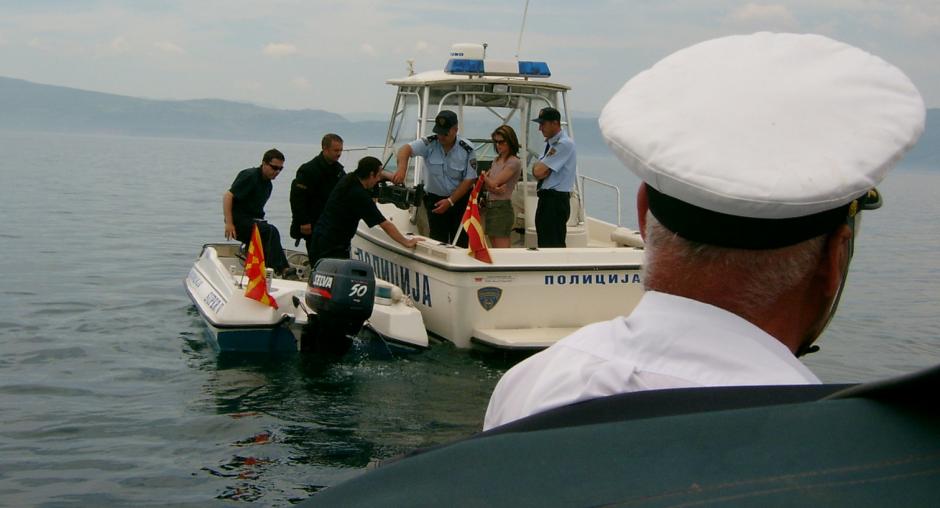Community policing on prime time
Community policing on TV
The OSCE Mission and the police have been working together for the last six months to produce a ground-breaking series of TV spots that promote the multi-disciplinary role of the police. Through actual examples of co-operation, the campaign highlights the increasing emphasis on community policing and the benefits it yields for the local communities. Accompanied by a small TV crew, and funded by the Dutch government, the Mission's team toured the country filming police in action and police promoting public service information.
Broadcast across the country in Macedonian and Albanian on 24 local and national TV stations, the series presents the role of sniffer dogs, the fight against juvenile drug abuse, environmental protection and basic self-defence. Each spot is two minutes long and many are broadcast several times a day. Over 50 have been produced so far.
The human face behind the uniform
"Many police were suspicious and nervous about talking in front of the camera in the beginning," says Campaign Manager Kimberly Reczek, who works with the Mission's Media Development Unit. "But there has been such a positive reaction from viewers that the police are now seeing the benefits."
In each episode of "Odblisku", the lively presenter Anita Latifi talks with police of all ranks and highlights practical information, revealing the various functions of the force. Interviewing newly graduated police cadets and the heads of specialized units, Latifi promotes the transparency of the institution by showing the human face behind the uniform - how the police work and what they are confronted with every day.
New confidence
The Ministry of Interior, which has never had such a pro-active media policy, welcomed the series. "We recognize that the use of public information is a key element in community policing," says Ministry Spokesperson Goran Pavlovski. "It brings the citizens and police much closer together."
David Tingle, Head of the Mission's Police Development Unit, believes that "Odblisku" is creating new confidence in the police, especially among ethnic groups in post-conflict areas. "A policy of non-co-operation with the media never works," he says. "It simply leads to a misinformed public, misunderstandings, higher crime rates and reduced crime detection. A multi-ethnic police force that measures its effectiveness in terms of improved service should always seek to work closely with the media."
The media campaign is jointly produced by the OSCE Mission, the Ministry of Interior and Modus Productions. The Mission also assists the Ministry's efforts through a network of Community Policing Trainers who work with the local police force.
The concept of community policing was first introduced in May 2002 at a conference organized by the OSCE Spillover Monitor Mission to Skopje and the Ministry of Interior. Since then, the Mission has supported the Ministry in implementing community policing activities, including citizen outreach initiatives aimed at improving inter-community relations. "Odblisku" is the first public information campaign promoting this concept and related activities.

